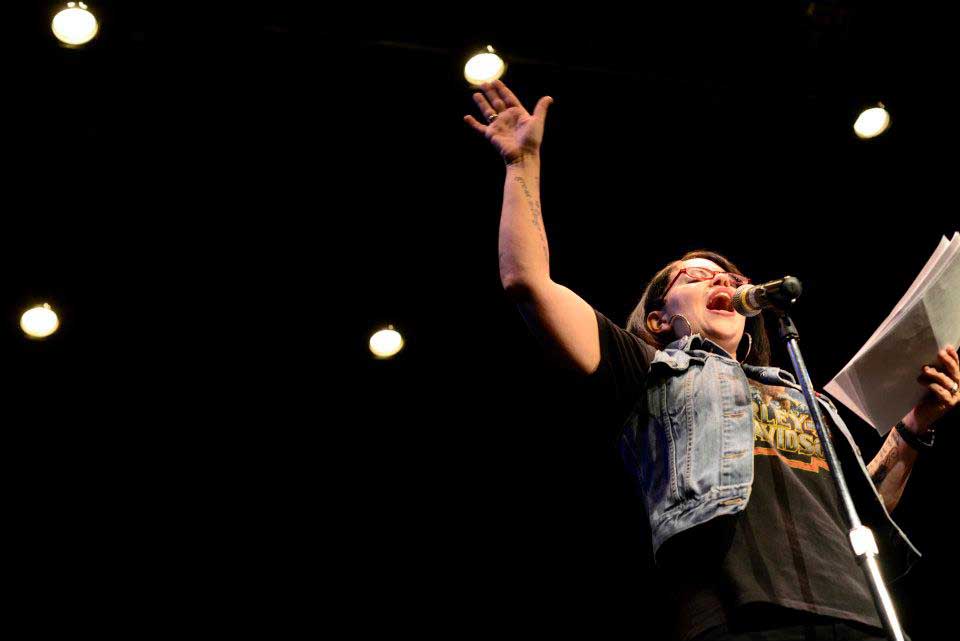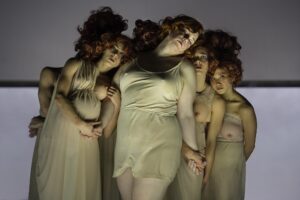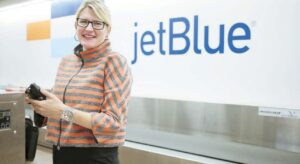
by " target="_blank">Heather Cassell
The girls got their say when they began spitting their fierce words in a rhyme and rhythm at poetry slams at bars and cafes around San Francisco in the late 1980s.
Soon after slam poetry nights took on a life of its own spreading across the nation culminating in the first-ever National Poetry Slam! in 1990 in San Francisco.
It was the end of the 1980’s bubble gum and pop when the second wave of feminism’s daughters’ came into their own and they were spitting mad. It was the years when Susan Faludi’s Backlash: The Undeclared War Against American Women topped the New York Time’s bestsellers list; Anita Hill’s sexual harassment testimony against then-U.S. Supreme Court nominee Clarence Thomas before the U.S. Senate; Fatal Attraction
, Thelma & Louise (20th Anniversary Edition)
and Fried Green Tomatoes (Widescreen Collector’s Edition) hit theaters across the nation empowering every woman and scaring every man; and feminist groups from the Guerrilla Girls to Riot Grrrls to The Third Wave to the Women’s Action Coalition (WAC) hit the streets.
Poets and writers like Daphne Gottlieb, Joyce Lee, and Meliza Bañales (a.k.a. Missy Fuego), three of six Slam Masters being honored this week at the 25th Annual National Poetry Slam in Oakland, spoke their minds on stages before San Francisco Bay Area audiences late into the night.
Clutching the mic in one hand and sheets of paper with their words scrawled in ink in the other, sometimes taking a swig of beer or water, before spitting out their thoughts on issues about being daughters, class, incest, feminism, motherhood, rape, racism, sexism, sexuality and everything in between.
Up there on the stage, they were just themselves, telling their truth.
“There was never a set agenda to represent anybody, it was represent your fucking self – like here you go. Here’s the platform,” says Meliza, the first Latina to win a poetry slam championship on the West Coast, about the beauty of the slam poetry movement.
Meliza, 36, a writer and filmmaker who now lives in Los Angeles after 15 years int he San Francisco Bay Area, also performed on the first all-woman slam team, the Santa Cruz Slam Team, in 1998.
All gender teams are unusual, Meliza says, but this year’s competition features another all-female slam team, the Nuyorican, from New York’s Nuyorican Poets Café (236 East 3rd Street; 212-505-8183; " target="_blank">; Nuyorican.org).
“It’s exciting though. It’s exciting when that happens only because it’s not as common to have these all-female teams,” says Meliza, adding that there are even occassionally all-male teams.
Unlike the Beat Generation, slam poetry opened up the flood gates for everyone and anyone to try their hand at matching up what they wanted to get off their chest with either rhymes or simply proseaic rhythem.
“There was a definite kind of clique status with the Beat Generation. There was this specific group of people who happened to be white men who were at the forefront of that movement,” says Meliza. “With slam it really wasn’t like that.”
“I’ve never felt that there wasn’t a place for me in slam,” says Meliza, which allowed her freedom to express herself. “That is probably why I kept doing it.”

Chick Speak
Yet, it wasn’t exactly like women were accepted. Women endured heckling, rolling of eyes, and murmers of “chick” poetry from men in the audience when they took the stage and the mic.
“It was very hard for females to do open mic in the 1990s,” says Meliza about the attitude toward women poets. “I remember getting hackled so badly.”
The atitutude was definitely anti-“chick stuff,” she says, basically women discussing anything considred to be a feminist or women’s issue, such as abuse, rape, violence or other issues when they took the mic.
“It was definitely this attitude, ‘Oh, you are going to talk about ‘chick stuff’ and I’m going to have to like it because it’s ‘chick stuff,’’” says Meliza.
San Francisco-based spoken word artist Daphne agrees.
“I was a bad match for poetry slam in that my work tends to be difficult and somewhat disturbing. Audiences don’t give you high scores for making them feel badly or provoked,” says Daphne, 45, whose works deal with feminist issues, such as rape. “I came off sort of like a quasi almost Tank Girl figure.”
The anti-chick atmopshere bore Sister Spit, a feminist poetry night and tour lead by author Michelle Tea. Michelle runs San Francisco’s long-standing monthly writers reading series, Radar Productions, at the city’s main public library.
Sister Spit and the poetry nights at led by Jennifer Joseph, owner of Manic D Press, that published many of the women slam poets, and Poetry Above Paradise at the former Paradise Lounge in the city, were the only welcoming spaces for women poets in the 1990s and 2000s, says Meliza.
Daphne and Meliza, who both toured with Sister Spit, point out that there is a long list of women – queer, straight, women of color – poets, such as, Patricia Smith, an African American women poet who is one of the founders of slam.
“They just wanted their own space,” says Meliza, about creating space for women poets.
Today, women in 72 teams compete against eachother annually at the Women of the World Poetry Slam and the NPS! hosts of “Take Back the Night Women’s Open-Mic,”being emceed by San Francisco Slam Master Ramona “Mona” Webb.

Word
In spite of the anti-feminist atmopshere at slam women never felt that they didn’t belong at Slam.
In 25 years, the NPS! has become increasingly more diverse and accepting of a variety of communities and of women as its grown, say the organizers and Slam Masters.
Today’s Slam looks nothing like that it did a quarter of a century ago. More than 500 poets representing 72 teams from North America descended on Oakland on Tuesday, August 5 to battle it out to be crowned this year’s Slam Master on Saturday night.
“I’m kind of surprised,” says Meliza, who doesn’t believe that any of the founding Slam poets ever expected that it would take off as it has. “I don’t think that any of us ever did it with the expectation that it would still be going on today.”
“It’s exciting. I think that it just speaks to the fact that its still very necessary,” says Meliza, amazed by the evolution of slam poetry and its popularity.
Yet, in some ways, she’s not suprised.
Slam was very approachable with immediate feedback, which fits perfectlly for performers and today’s incredibly accessible and instant gratification cutlutre.
“Slam is a very approachable resource to them. It’s incredibly immediate,” says Meliza. “It was that instant accessibility to poetry and it was this instant accessibility for artists to become poets, for anybody to become a poet. It really stripped the whole idea that you had to be classically educated, that you had to be an actual written writer, that there was some sort of elitism.”
That accessibility and Oakland’s diversity speaks to the evolution of NPS!.
This year marks the first time the poetry competition has returned to the San Francisco Bay Area since the 1990s, where it all began in 1990, the host city organizers say, and they are glad.
“Oakland is this incredible cultural hotbed that is constantly overlooked,” says Meliza, pointing out that some of the best slam teams to go to nationals have come from Oakland.
Meliza was on the Oakland Slam Team when she went to nationals in the 1990s.

“It’s an incredible opportunity for Oakland to showcase itself as a gem in the Bay Area celebrating arts, celebrating community, and celebrating our love for this city through the power of voice,” Maureen Benson, volunteer host city co-director of NPS!, agrees.
Mona, who is one of the Bay Area organizers and community outreach coordinator for NPS, agrees.
“The Bay Area, we are an extraordinarily diverse artist community and to showcase that to the national poetry circuit that everyone’s voices are being represented, that’s important,” says Mona.
“One of the things that I love about this community is the fact that poetry speaks to everyone there’s amazing performances in poems,” says Maureen pointing out that there is something for everyone and something for everyone to learn at Slam. “There is an amazing opportunity to learn from a perspective that isn’t yours.”
“Take Back the Night Women’s Open-Mic,” emceed by Mona is tonight, Thursday, August 7, 11 p.m. – 1 a.m. at Shadow Ultra Lounge, 341 13th Street, 510-839-1999. Free.
For more information, visit NPS2014.poetryslam.com.
To book your Poetic Adventure, contact Heather Cassell at Girls That Roam Travel at Travel Advisors of Los Gatos at 408-354-6531at or .
To contract an original article, purchase reprints or become a media partner, contact ">.







